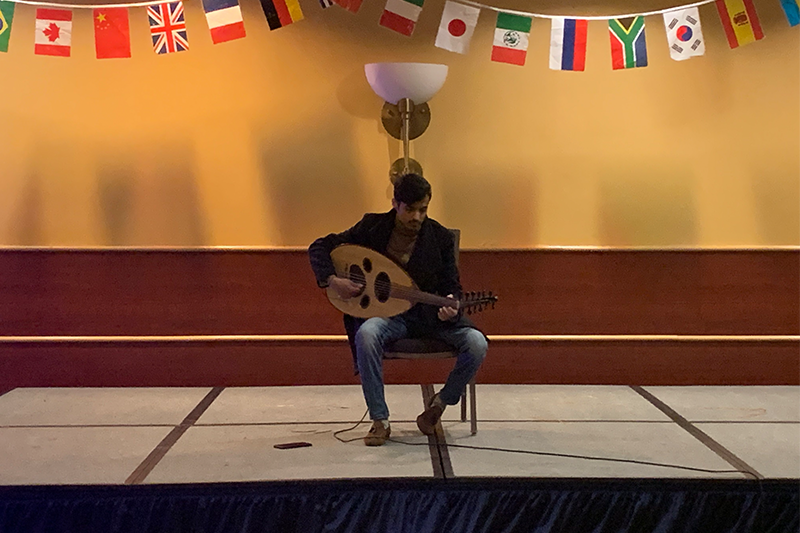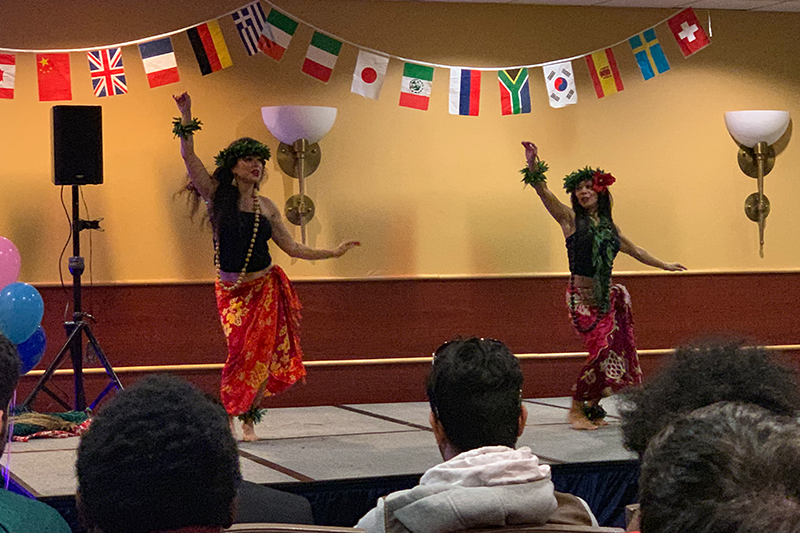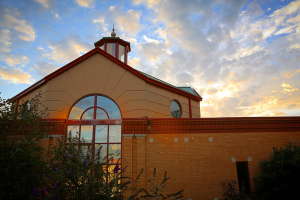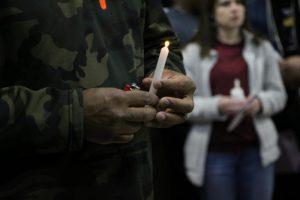Global Karneval celebrates different cultures at RMU
Robert Morris University hosts the 2019 Global Karneval on April 2, 2019. Photo Credit: (RMU Sentry Media/Soundharjya Babu)
April 5, 2019
MOON TOWNSHIP – International students and organizations across the Robert Morris University campus celebrated their culture and shared it with the community.
The third annual Global Karneval featured various booths, each representing different cultures. Saudi Arabia, Japan, India, Ethiopia, and Latin America were all represented at the event. Food was offered the event along with various activities such as henna. People at the event also got the opportunity to try on kimonos.
“We get to learn about each other and interact in ways that we wouldn’t necessarily do on a daily basis,” said Savannah Francois, president of the Organization of Latin American Students.
Ten Thousand Villages, an organization that supports developing countries, showcased handmade items from different countries. Students could buy jewelry and crafts made by people around the world.
Ten Thousand Villages has supported over twenty thousand makers in 30 developing countries, helping individuals earn a safe and sustainable income. The crafted items included jewelry, carved stones, metalwork and pottery.
While trying to break the cycle of poverty, they also want to help women earn a safe income to support their families, and allow their children to have an education.
Another booth in the Global Karneval helped ensure that women could go to school. Anna Maria Karnes, member of the organization WRAPS, emphasizes the importance of getting rid of the stigma around menstruation.
WRAPS supports girls in Ethiopia who do not have access to menstruation products, especially in rural areas. This can hinder their education because of the inconvenience and stigma surrounding menstruation.
“The sanitary napkins are made in Ethiopia by Ethiopians and distributed in schools,” explained Karnes. “This will last for about two years.”
WRAPS was created by Karnes’s parents in Ethiopia. With her parents living there for eight years, her mother noticed the lack of access to sanitary napkins in rural areas.
“She really started thinking about the problem and asking what they can do about it,” said Karnes. “She started sewing together something and then they got so much interest.”
Now, WRAPS has a small factory of thirteen women who sew pads and go into the school system to teach women about the menstrual cycle. In RMU, Karnes sold headbands, where each purchase would go towards a kit for girls with reusable sanitary pads.
“It’s small grassroots organizations that are doing this and making a difference,” said Karnes.
From 3 p.m. to 6 p.m. in Yorktown Hall, performers showcased traditional dances and songs. This included Hawaiian, Japanese and Saudi dancing. Abdulhadi Almutairi held an oud performance, an instrument used in the Middle East.
Jennifer Creamer, director of the Center for Global Engagement was excited about the variety of cultural activities in the room.
“We have international students from over 30 countries,” Creamer said. “We want to showcase all the different cultures that are at RMU.”
















